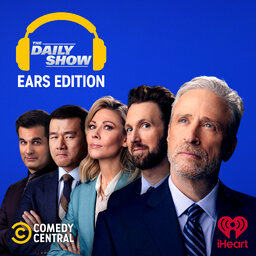Roy Talks NFL Player Safety with Nate Burleson | Beyond the Scenes
Buffalo Bills safety, Damar Hamlin, went into cardiac arrest during a game. This injury sparked conversations about the safety of football and the ways the NFL protects their players’ well being. Host Roy Wood Jr. sits down with CBS Mornings co-host, Nate Burleson, to discuss their feelings towards the game, the importance of protecting players’ mental health, and the fight for lifetime insurance in the NFL.
Original air date: January 17, 2023
In 1 playlist(s)
The Daily Show: Ears Edition
Jon Stewart and The Daily Show News Team cover today's biggest headlines. The “Ears Edition” of The …Social links
Follow podcast
Recent clips

TDS Time Machine | Space!
32:23

Elon’s Grok Chatbot Turns Hitler & Marco Rubio Gets an AI Imposter | Lauren Greenfield
34:52

DOJ Erases Epstein & Netanyahu Kisses Trump's Ass With Peace Prize Nom | Author Michael Luo
34:00
 The Daily Show: Ears Edition
The Daily Show: Ears Edition